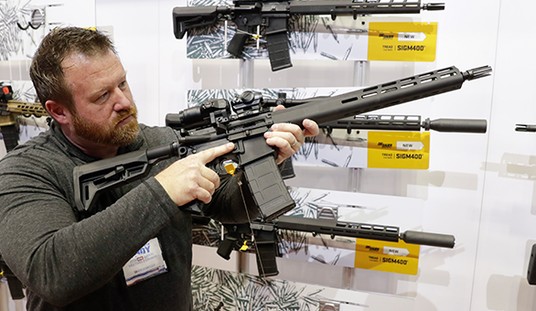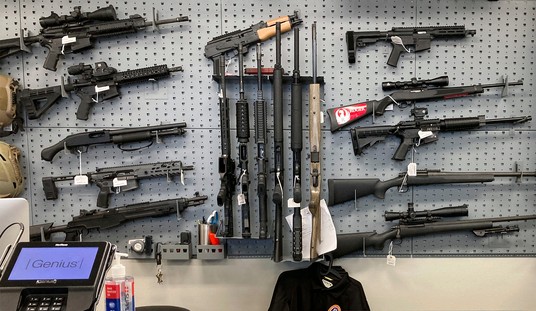The way gun control groups and certain anti-gun liberal Democrats tell their outlandish stories, you would think that machine guns flow from manufacturers to gangs in the streets like water rushing down a mountainside.
They always seem to forget to mention the fact that precisely ZERO new machine guns have hit the civilian market since 1986, thanks to the controversially-passed Hughes Amendment which banned the sale of new machine guns to law-abiding Americans.
Now a pair of lawsuits are challenging the constitutionally of that 29-year-old ban.
A complaint for declarative and injunctive relief was filed Friday in the United States District Court for the Eastern District of Pennsylvania. Plaintiff Ryan S. Watson, acting individually and as trustee of the Watson Family Gun Trust, is suing Attorney General Eric H. Holder, Jr. and Bureau of Alcohol, Tobacco, Firearms and Explosives Director B. Todd Jones in their official capacities for administering, executing and enforcing “statutory and regulatory provisions [that] generally act as an unlawful de facto ban on the transfer or possession of a machine gun manufactured after May 19, 1986.”
Attorney David R. Scott is joined in the lawsuit by Stephen D. Stamboulieh, the Mississippi attorney who filed a similar action in Texas on October 30 in the case of Hollis v. Holder. This latest action differs from the first in that Watson is subject to an actual taking resulting from actions performed under authorization of the Bureau of Alcohol, Tobacco, Firearms and Explosives, for which approval was later revoked.
There is little doubt from a logical perspective that the Hughes Amendment is a clear violation of the Second Amendment. The clear purpose of the Second Amendment was to ensure that the citizenry would always have access to arms of military utility in order to defend itself against foreign enemies and domestic tyranny alike.
Automatic weapons clearly qualify as military arms of the kind that would be useful for militia service, and while Congress’ National Firearms Act of 1934 (NFA) restricting the sale and possession has never been successfully challenged in court, it appears that the Hughes Amendment would not pass strict scrutiny in front of a reasonably honest jurist.
If the challenges are successful, the uninformed media will now doubt (once again, still) scream that overturning the blatantly unconstitutional law will lead to “blood in the streets.”
This is of course absurd, as purchasers will still be required to go through the same process they currently do to acquire automatic weapons through the ATF as outlined in the NFA.
The practical effect of striking down the Hughes Amendment would be that purchasers who paid their $200 tax stamp and were approved to own machine guns after a thorough background check would be able to buy new machine guns, instead of being restricted to those built prior to when the law went into effect as part of the Firearm Owners Protection Act in 1986.
[Cover image of Scorpion EVO3 A1 9mm submachine gun courtesy of CZ-USA]








Join the conversation as a VIP Member